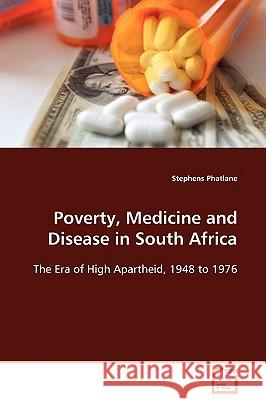Poverty, Medicine and Disease in South Africa » książka
Poverty, Medicine and Disease in South Africa
ISBN-13: 9783639105827 / Angielski / Miękka / 2008 / 292 str.
A higher infant mortality rate and a shorter life expectancy, coupled with a high prevalence of a variety of diseases commonly associated with malnutrition, are usually a reflection of the social conditions of poverty in a society. By arguing that apartheid formed the basis of inequality and the underlying cause of an unacceptable burden of diseases of poverty among black South Africans, the author locates these health problems within their social, economic, and political context. He argues that if health and disease are measures of the effectiveness with which human beings using scientific and cultural resources adapt to their environment, this relationship underpins the convergence of medical and cultural interests. He explains why in a pluralistic medical setting where only biomedicine was recognised as legitimate, for the majority of Africans the advent of such medicine was viewed not so much as displacing their time tested remedies, but as increasing the medical options available to them. With its new approach to health problems, this book will be useful to policy makers and health workers in this age of the HIV/AIDS pandemic.











